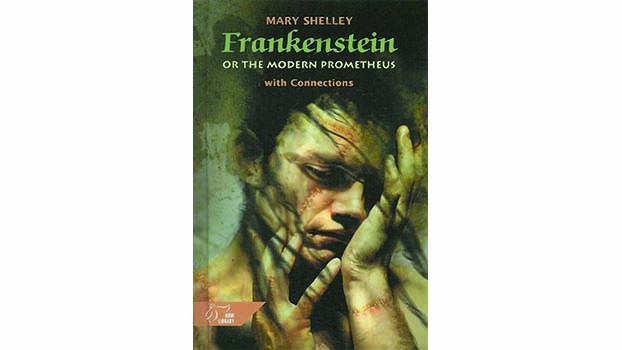Book Talk
Frankenstein
by Mary Shelley

Victor Frankenstein, son of an illustrious Swiss family seems to have everything: wealth, youth, friends and family. He also has a burning desire for knowledge which he aims to satiate by studying at the prestigious Ingolstadt University. However his passion for learning leads him to perform a deed as terrible as it is marvelous. He finds the secret to life itself and builds a man, a towering monster of a man and endows it with life. Horrified and repulsed by his own creation, Frankenstein flies from the university and from anything related to his field of research. Shocked and weakened by his labors and the horror he has endured, Frankenstein becomes an unhappy shadow of his former self. He returns home to find that his creation is sentient, aware of him and has already committed murder. Shunned by all, lonely and abandoned by even its creator, the miserable monster requests him to make a companion for him. Frankenstein refuses to unleash another such fiend upon the human race. A struggle begins between the two: the maker and his fiend- A struggle that can end only in complete destruction of either- A struggle that will reveal the true nature of both. It raises the question: who is the true author of evil, the creator or the creation?
‘Frankenstein’ or the Modern Prometheus was written by Mary Shelley; wife of the famous English poet Percy Bysshe Shelley; and published in 1818. The book is a foray into the genre of Gothic-horror fiction and one of the first of its kind. It deals with the ethical issues of advancing technology and explores man's relationship with his maker at an allegorical level.
The book is written as a series of narratives in the first person; introduced as a series of letters from an explorer to his sister, then as a recount of Victor Frankenstein's tale. The language is representative of English typical in the 19th century. However it is quite simple and easy to understand and the prose is very free-flowing. The plot is built up masterfully and the two main characters are remarkably well sketched.
I don't consider it to be so much of a horror novel than a tragedy. It is a beautiful work and an excellent exploration of the many motives, emotions and actions pervading the human mind. The book appears simple enough at first glance and the characters easy to judge, however by the end the reader is left wondering as to the real nature of ‘evil’ as it is called. Is the object intrinsically evil or does the presence of mitigating circumstances reduce its degree? Most people who read it will be surprised to see the contrast between Shelley's anguished, well-spoken creature and the bumbling, dim-witted monster dubbed 'Frankenstein' by the doltish creators of the television shows and movies.




